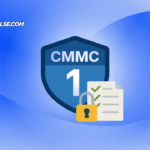Clinical rotations are an important element of veterinary school because they help students bridge the gap and transit somewhat from being a student to a medical practitioner. They examine patients and begin to understand processes as clinical rotation students. They evaluate, assess, and prescribe medications alongside a practitioner, who is a professionally trained and licensed veterinarian who teaches at a medical university. Each student passes among the multiple disciplines during their clinical rotation, which lasts six to eight weeks. The vet school clinical rotations offer expertise in diverse areas including equine medicine and surgery, oncology, diagnostic pathology, food animal medicine, surgery, small animal internal medicine, anesthesiology, radiology, ophthalmology, diagnostic imaging, small animal community practice, neurosurgery, small animal orthopedic surgery, and many others.
Clinical rotations are an exciting experience for students since they involve training and working in real-life situations under professional supervision. To continue working to your full potential, you’ll need a lot of patience and hard effort. You’ll need a few skills to get through your clinical rotations in medical school. Here are a few more essential things that you will learn during your clinical rotations:
- Clinical rotations allow practitioners to engage with professionals, experts, and other accompanying doctors, allowing them to benefit from their insights and develop a community of resources to help you learn about this field. Students get the opportunity to interact and explore the techniques that are being implemented into their actual routines. They know how to take responsibility for patients in a real-world scenario.
- Clinical rotations are quite beneficial for learning about a certain specialized topic such as hematology. You get the opportunity to engage with specialists in this field and solicit their advice so that you might follow that path as well. They have practical intensive care expertise and can offer you some of the most helpful tips for moving forward with their philosophies.
- It’s an excellent method to establish a network prior to actually pursuing specialties. Cultivating a knowledge base will assist you in determining the career track that will allow you to identify yourself as a medical practitioner. In the preclinical stages, a trained surgeon can supply you with useful information, but it will alter dramatically throughout the clinical phases. It will assist you in comprehending the norms and requirements of a person or the organizations that you are affiliated with.
- You’ll also learn how to write a history and physical in a methodical way, which may contain the preliminary symptoms, evaluation, observations, treatment, and medical background in order to keep the record up to date. Only after a thorough physical examination, you can do a history and physical. You may save a lot of time by memorizing all of the usual vital sign numbers and other test findings. It’s not just about memorization; it’s about comprehending the relationship between the two variables and their impact on many aspects of your functional ability.
If you’re planning to start your clinical rotation assignments, you should concentrate on all of the above points and making progress on it right now. Make the most out of your clinical rotations since they will offer you a range of skills and knowledge. Choose your clinical rotations carefully if you want to pursue a medical profession in the coming years.












